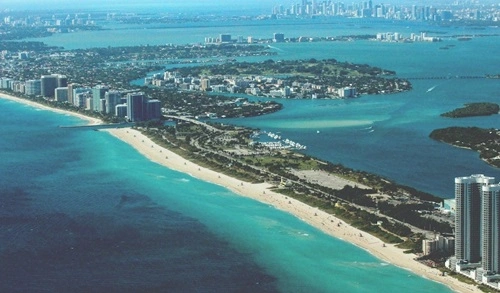North Carolina has been steadily gaining popularity as a destination for families, retirees, and young professionals looking for a well-rounded lifestyle. Nestled between the Appalachian Mountains and the Atlantic Coast, this southeastern state offers a bit of everything—from charming small towns to thriving cities, from scenic landscapes to vibrant cultural hubs. But like any place, North Carolina has both its advantages and its drawbacks. If you’re considering a move to the Tar Heel State, here’s a closer look at the pros and cons of living in North Carolina.
Pros of Living in North Carolina

1. Diverse Geography and Natural Beauty
One of the biggest draws to North Carolina is its incredibly diverse geography. Whether you prefer the mountains, the coast, or rolling countryside, you’ll find it here. Western North Carolina boasts the stunning Blue Ridge Mountains, ideal for hiking, biking, and weekend getaways. On the other side of the state, the Outer Banks and Atlantic beaches offer beautiful, laid-back coastal living.
2. Moderate Climate
North Carolina offers a pleasant four-season climate without the extremes experienced in many other states. Winters are generally mild (especially in the eastern and central parts of the state), and while summers can get hot and humid, they’re not as intense as in Deep South states like Florida or Louisiana. Spring and fall are particularly enjoyable, with colorful foliage and comfortable temperatures.
3. Affordable Cost of Living
Compared to coastal or northern states, North Carolina offers a relatively low cost of living. Housing is affordable in many areas, utilities and taxes are moderate, and day-to-day expenses like groceries and gas are reasonable. This affordability makes the state especially attractive for retirees and remote workers looking to maximize their dollar.
4. Thriving Job Market
North Carolina has experienced robust economic growth, particularly in sectors like technology, finance, education, and healthcare. The Research Triangle—made up of Raleigh, Durham, and Chapel Hill—is a national hub for tech companies, startups, and universities. Charlotte, one of the nation’s largest banking centers, is home to Bank of America and other major financial institutions.
5. Top-Notch Education
North Carolina boasts a strong public university system, including highly respected schools like the University of North Carolina at Chapel Hill, Duke University, and North Carolina State University. Public K–12 schools in certain districts, especially around Raleigh and Charlotte, are also well-rated. For families with kids or students pursuing higher education, the state offers excellent options.
6. Southern Hospitality and Culture
North Carolina combines Southern charm with modern living. People are generally friendly, communities are close-knit, and there’s a rich cultural heritage to explore. From Appalachian music in the west to coastal traditions in the east, the state has a strong sense of identity and pride.
Cons of Living in North Carolina
1. Hurricane Risk
While the mountains are relatively safe, North Carolina’s eastern region is vulnerable to hurricanes and tropical storms. Coastal residents, particularly those near the Outer Banks and Wilmington, must prepare for potential evacuations and property damage during hurricane season (June to November).
2. Hot, Humid Summers
Summers in North Carolina can be hot and sticky, especially in the Piedmont and coastal regions. High humidity levels can make the heat feel more intense, and air conditioning is a must. If you’re not a fan of muggy weather, the summer months may be uncomfortable.
3. Urban Sprawl and Traffic
As cities like Raleigh, Charlotte, and Greensboro have grown rapidly, traffic congestion and urban sprawl have followed. Public transportation is limited outside of the major metros, making car ownership a necessity for most residents. Infrastructure has struggled to keep pace with the state’s booming population in recent years.
4. Pockets of Rural Poverty
While North Carolina has thriving urban centers, it also has many rural areas where poverty rates remain high. These communities often face limited access to healthcare, education, and employment opportunities. Economic disparity between urban and rural regions is a real issue, especially in the eastern and far western parts of the state.
5. Healthcare Access Can Be Uneven
Urban areas in North Carolina typically offer high-quality healthcare facilities, but rural residents may have to drive long distances for specialized services or deal with understaffed clinics. Additionally, the state did not initially expand Medicaid under the Affordable Care Act, which limited access to affordable healthcare for many lower-income families (though this has started to shift).
6. Allergy Season Can Be Tough
North Carolina’s lush environment brings beauty, but also seasonal allergies. Pollen counts can be particularly high in the spring and fall, which may cause problems for people with respiratory issues or sensitivities to allergens.
Conclusion: Is North Carolina a Good Place to Live?
For many, the answer is yes. North Carolina offers a compelling blend of natural beauty, economic opportunity, cultural richness, and affordability. Whether you’re looking to build a career, raise a family, or enjoy your retirement years, the state has much to offer.
That said, it’s important to weigh the downsides. The climate, storm risks, and rural-urban divide may not suit everyone. And like many states experiencing rapid growth, North Carolina faces challenges related to infrastructure, housing demand, and environmental preservation.
Ultimately, if you appreciate a balanced lifestyle—access to both city amenities and natural escapes, a reasonable cost of living, and friendly communities—North Carolina might just feel like home. Just bring sunscreen for the summer and maybe an umbrella for hurricane season.
Tip: If you’re considering a move, spend time in different parts of the state—each region has its own personality, climate, and pace of life. From the mountain towns to the beachside communities, North Carolina truly has something for everyone.



